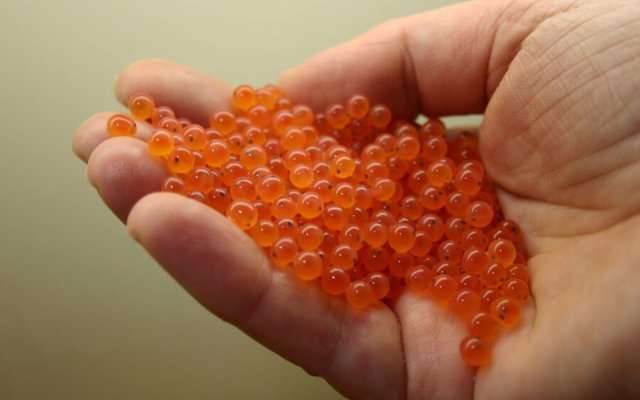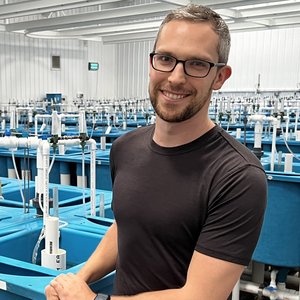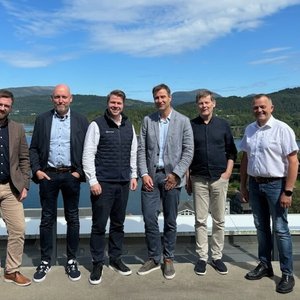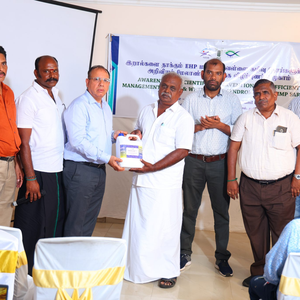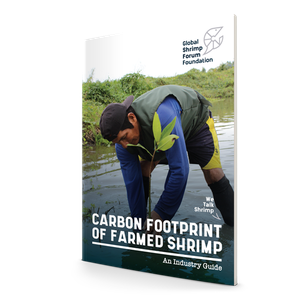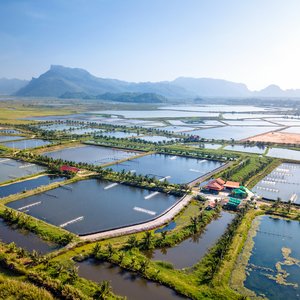AquaGen has been selecting for resistance to cardiomyopathy syndrome (CMS) for nearly 15 years. This long-term work is now showing results: an increasingly larger proportion of fish are nearly virus-free after challenge tests, the company reported. This marks a significant breakthrough in the fight against one of the aquaculture industry’s most serious viral diseases.
CMS is caused by piscine myocarditis virus (PMCV). This virus attacks the heart muscle and can lead to sudden and severe mortality, often late in the production cycle. The disease has long posed a major challenge for fish farmers, with significant economic consequences.
In 2018, AquaGen implemented genomic selection in its CMS resistance program. This method involves reading more than 70,000 DNA markers across the salmon genome, enabling the selection of broodstock based on genetic similarity to resistant fish. Through this process, a QTL (Quantitative Trait Locus) with a strong effect on CMS resistance was identified on chromosome 23.
When AquaGen first identified this QTL in 2018, it marked the beginning of a long-term, targeted breeding effort. Since then, other researchers in the field have reported the same QTL. What sets AquaGen apart today is that the company has succeeded in increasing the frequency of the favorable gene variant to a level that allows for commercial use, making it highly relevant to the industry.
A QTL (Quantitative Trait Locus) is a gene that has a particularly large effect on a specific trait, in this case, CMS resistance. CMS resistance can be measured through a challenge test, where fish are infected with PMCV and the virus load is measured using PCR nine weeks after infection. More than half of the variation in virus load is due to the fish’s genetics, making CMS resistance a highly heritable trait. The QTL on chromosome 23 alone accounts for over 70% of this heritability in AquaGen’s salmon strain. This means that this specific QTL largely determines how resistant each fish is, making it a key factor in the genetic resistance program (see figure).
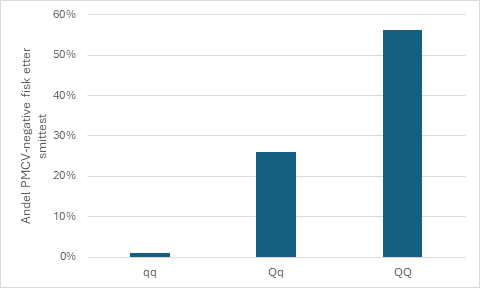
Percentage of infection-tested fish that are free of virus (PMCV) after infection test, for fish that have 0 (qq), 1 (Qq) or 2 (QQ) copies of the gene variant that confers resistance. Credits: AquaGen
"Through systematic use of genomic selection and targeted breeding, AquaGen has taken an important step in reducing the impact of CMS in Norwegian salmon farming. The documented effect of the QTL on chromosome 23 provides a strong genetic foundation for further improvements in both fish health and production outcomes. With the growing presence of the favorable gene variant in the breeding stock, this knowledge is poised to benefit the entire industry in the near future," the company said.


